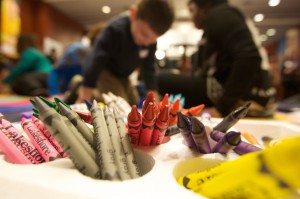#1. Connect Constantly
Regardless of the many curveballs that may be thrown their way during a typical school day, innovative educators are always connected. With a base camp on Twitter, they move from hashtag to hashtag, sharing, connecting and learning, branching out regularly to other social media platforms to expand their reach. Embracing helpful feedback, discovering exciting concepts, and constructing new ideas, these educators then attempt to import their new-found expertise to the classroom, turning theory into practice, and ideas into movements.
#2. Self-Assess Hourly
With every class delivered, innovative educators try to make time for self-assessment. Analyzing each lesson, and extracting the key elements that worked the best, and those that failed to deliver, they assess the effectiveness of their methods, learning from their own data, and making the necessary improvements next time around. By using technology to save time on lesson planning and tracking student progress, they allow more time for self-education, improvement, and innovation.
#3. Experiment Daily
The key to innovation is experimentation. Highly innovative educators aren’t afraid to reach outside their comfort zones and try something new. On a daily basis, they experiment with new tech tools to further their pedagogy. Whether investing time in mobile technology for flexibility, adaptive technology for personalization, or social media for collaboration, innovative educators are fearless when it comes to testing new tools to improve their lessons. Allowing students to take the reigns every now and again, they dedicate time to independent learning, creativity and critical thinking through the flipped classroom, genius hour, and competency-based learning, among others.
#4. Fail Weekly
Innovative educators see failure as part and parcel of the learning process. Viewing themselves as lifelong learners, learning alongside their students, they’re not afraid to unveil their many flaws. Relentlessly tacking every obstacle, they seek out feedback and try to involve their students in their ever-changing methods. With each failure, innovative educators see themselves moving ever closer to success, alongside their students, applying the lessons learned to their next innovative attempt to offer the best that they have to give.
#5. Repeat
For many innovative educators, the end of the week marks the beginning of the next. Instead of waiting for change to happen, they make it happen. Jumping straight back into the driver’s seat, they immerse themselves yet again into the world of the connected educator, assess their lessons, experiment, and embrace failure, continually repeating the process as they observe the positive impact innovation has on themselves, their students, and their colleagues.

Are you an innovative educator looking to try something new? Discover unlimited possibilities with the next generation learning platform, the all-in-one innovation solution!
About the author:
Lorna Keane specializes in language teaching and has taught in second and third-level institutions in several countries. She holds a B.A in languages and cultural studies and an M.A in French literature, theory and visual culture. Follow her on Twitter or connect on LinkedIn.
Image credits: Ignacio Palomo Duarte / CC BY 2.0
